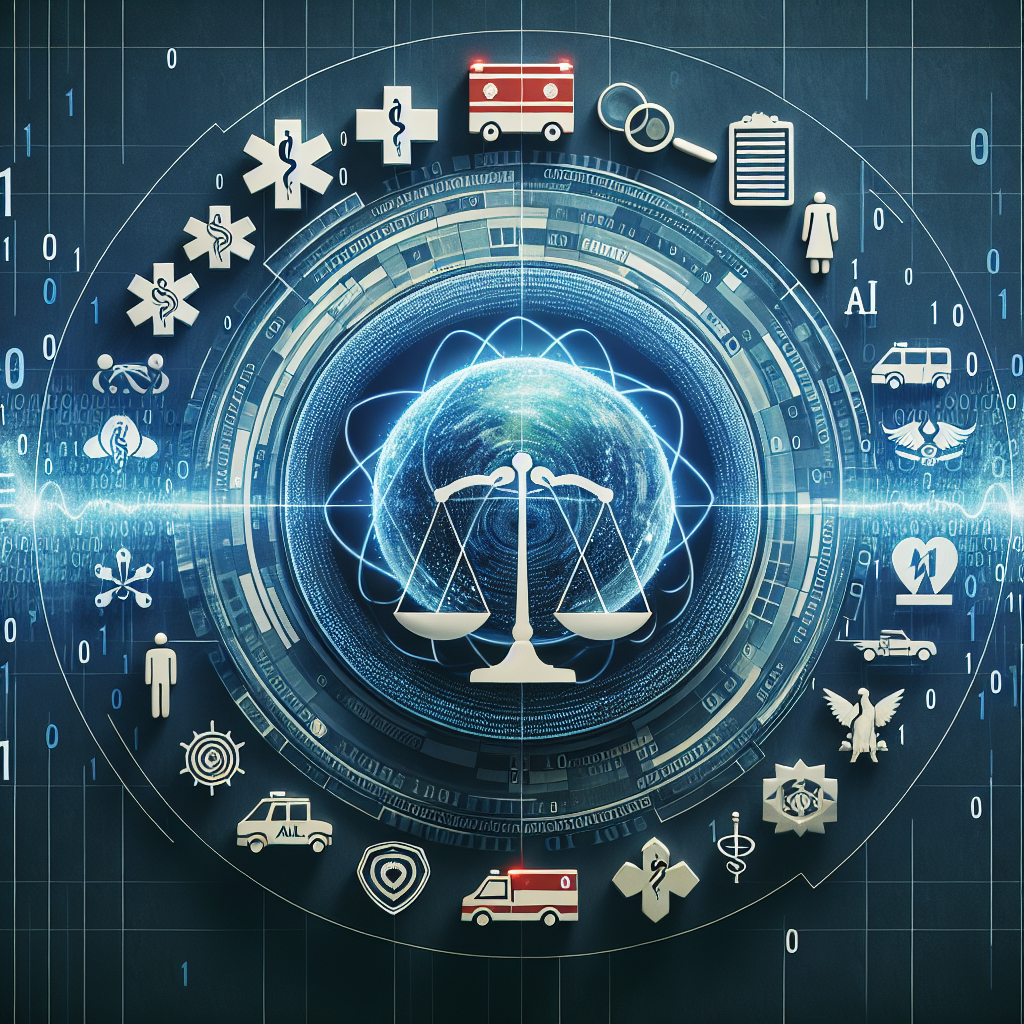In recent years, the use of artificial intelligence (AI) in emergency management has become increasingly prevalent. From predicting natural disasters to optimizing response efforts, AI has the potential to greatly improve the effectiveness and efficiency of emergency response. However, as with any technology, there are ethical considerations that must be taken into account when implementing AI in emergency management.
One of the most important ethical considerations in the use of AI in emergency management is ensuring fairness and equity. This means that AI systems must be designed and implemented in a way that minimizes bias and discrimination, and ensures that all individuals and communities are treated fairly and equally in times of crisis.
There are several key principles that can help guide the development and implementation of ethical AI in emergency management. These include transparency, accountability, and inclusivity. Transparency means that AI systems should be open and understandable to the public, so that individuals can understand how decisions are being made and why. Accountability means that there should be mechanisms in place to hold AI systems and their developers responsible for any harm or wrongdoing that may occur. Inclusivity means that AI systems should be designed to serve the needs of all individuals and communities, regardless of race, gender, or socioeconomic status.
One of the biggest challenges in ensuring fairness and equity in AI systems is addressing bias. Bias can creep into AI systems in a variety of ways, from the data used to train the system to the algorithms themselves. For example, if a dataset used to train an AI system is not representative of the population it is meant to serve, the system may make biased decisions that disproportionately harm certain groups. Similarly, if the algorithms used in the system are not designed to mitigate bias, they may inadvertently perpetuate discrimination.
To address bias in AI systems, developers can take several steps. One important step is to ensure that the data used to train the system is diverse and representative of the population it is meant to serve. This may require collecting additional data or using techniques such as data augmentation to create a more balanced dataset. Developers can also use techniques such as bias detection and mitigation to identify and address bias in their algorithms.
Another important consideration in ensuring fairness and equity in AI systems is the impact of decisions made by these systems on individuals and communities. For example, if an AI system is used to allocate resources during a disaster, it is important to consider how those decisions may affect different groups. Ensuring that decisions are made in a way that is fair and equitable requires careful consideration of the potential impacts on marginalized communities and the implementation of safeguards to prevent harm.
In addition to addressing bias and ensuring fairness and equity, it is also important to consider the broader ethical implications of using AI in emergency management. For example, there are concerns about privacy and data security, as well as the potential for AI systems to be used for surveillance or control. It is important for developers and policymakers to consider these ethical implications and put in place safeguards to protect individuals and communities from harm.
Despite these challenges, the potential benefits of using AI in emergency management are significant. AI has the potential to improve the speed and accuracy of decision-making, optimize resource allocation, and enhance communication and coordination among response agencies. By ensuring that AI systems are designed and implemented in an ethical manner, we can harness the power of this technology to better prepare for and respond to emergencies.
In conclusion, the use of AI in emergency management has the potential to greatly improve the effectiveness and efficiency of emergency response. However, it is important to ensure that AI systems are designed and implemented in a way that minimizes bias and discrimination, and ensures fairness and equity for all individuals and communities. By following ethical principles such as transparency, accountability, and inclusivity, we can harness the power of AI to better prepare for and respond to emergencies.
FAQs:
Q: How can bias be addressed in AI systems used in emergency management?
A: Bias can be addressed in AI systems by ensuring that the data used to train the system is diverse and representative of the population it is meant to serve, and by using techniques such as bias detection and mitigation to identify and address bias in algorithms.
Q: What are some of the ethical considerations in using AI in emergency management?
A: Some of the ethical considerations in using AI in emergency management include ensuring fairness and equity, addressing bias, considering the impact of decisions on individuals and communities, and addressing broader ethical implications such as privacy and data security.
Q: What are some of the potential benefits of using AI in emergency management?
A: Some potential benefits of using AI in emergency management include improving the speed and accuracy of decision-making, optimizing resource allocation, and enhancing communication and coordination among response agencies.
Q: How can developers and policymakers ensure that AI systems in emergency management are ethical?
A: Developers and policymakers can ensure that AI systems in emergency management are ethical by following principles such as transparency, accountability, and inclusivity, addressing bias, considering the impact of decisions on individuals and communities, and addressing broader ethical implications such as privacy and data security.

